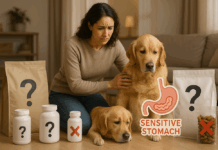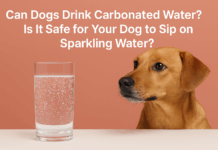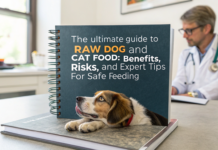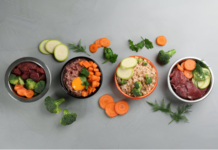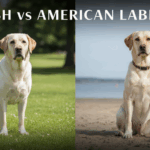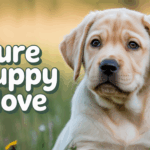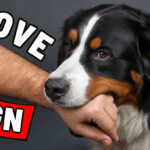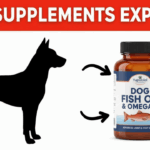Last Updated on March 1, 2023 by Dogs Vets
Wet or dry food — which should you gives your dog to eat?
It might be challenging to decide what kind of food to give your dog and how to puppy proof your home because so many alternatives are available.
One of the first choices you will need to make involves selecting a diet that is appropriate for your canine companion.
Dry food is ideal for maintaining your dog’s dental health, while wet food is great for giving your dog an extra dose of moisture.
It may not be easy to decide which type of food is best for your dog because wet and dry dog food offers a variety of advantages that you cannot find in the other.
The wonderful thing is that you have no requirement to do so!
When it comes to the food you give your dog daily, the greatest selection that can provide a variety of health benefits is likely to be one that includes both of these foods.
Dry vs. Wet (Canned) Dog Food
What are the key distinctions between dry and wet food for canines?
Which of these options is healthier for your dog? Wet diets with higher water content may be simpler to chew for puppies and older pets and more appealing and satisfying.
Additionally, wet diets may include fewer artificial preservatives and odours because they are stored in airtight containers.
Wet diets often have higher protein content and fewer carbohydrates than their dry counterparts. It may be useful for animals that need to maintain a lean muscle mass or have medical issues such as diabetes mellitus.
When comparing the nutritional value of a wet diet to that of a dry diet, you must be sure to do so base on the amount of dry matter contained in each diet.
There is a manual available from the FDA that explains how to perform this calculation.
Dry foods may help improve oral hygiene by assisting in the elimination of plaque through a mechanical process. Additionally, they are less difficult to store and typically cost less money. Ultimately, the decision to feed wet or dry food is between you and your veterinarian.
To provide a balanced diet for your canine companion and prevent overfeeding, you should get started on your search for high-quality dog food that is also nutritious.
Advantages of wet dog food
Increased hydration levels
Some pets may have difficulty drinking enough water daily, which is especially crucial during the warm summer months, and animals are more likely to suffer from urinary tract infection disease (a common problem in small dogs).
Wet food has more moisture than dry food, so feeding it to your pet is an excellent way to enhance the water they consume daily.
Great palatability
Because wet food has a greater aroma than dry food, its improved smell makes it more appealing to picky eaters because they can detect it more easily.
Wet food is an excellent option for encouraging feeding for puppies, older pets, and pets recovering from sickness since it is highly digestible, easy to chew, and has an alluring meaty aroma. It makes it a great choice for encouraging feeding.
Variety
Wet foods help to provide variety in terms of flavour, texture, and aroma, all of which can help to make mealtimes more delightful and stimulating. Plus, dozens of flavours and textures are available to fit your dog’s specific tastes!
Weight management
It may be beneficial to incorporate a wet dog supplies into your dog’s diet to facilitate weight loss and the maintenance of healthy body weight.
Wet food has a lower energy density than dry kibble, meaning you may use the same number of calories to provide a bigger portion. As a result, your pet will be able to finish its meal feeling fuller and more content than when fed dry kibble.
Maintaining a Sound Metabolism
Wet food contains an appropriate proportion of proteins, lipids, and carbs, all of which contribute to the upkeep of a healthy metabolism.
Advantages of dry foods
Lower costs
Wet foods have approximately four times the number of calories per kilogram of dry foods. Compared to wet food, this makes it a more cost-effective option.
Flexible feeding
Dry food is incredibly convenient for dogs that like to eat on their timetables because you can leave it in their dish all day for them to nibble on whenever they feel like it.
On the other hand, you must feed wet food at specific times. In contrast, moist food must be removed from the table within the first hour after it has been laid out.
Promotes better dental health
It has been shown that some diets can significantly improve dental health by reducing plaque and tartar accumulation.
It contains extra minerals and vitamins.
The components in dry dog food are of the highest possible quality. It also includes extra vitamins and minerals, which are excellent for the dog’s overall health, bone development, and mental acuity.
Weight goals
If your pet has trouble eating enough wet food to meet its caloric needs, supplementing its diet with nutrient-dense dry food may be able to help. It is because dry food contains a higher concentration of nutrients.
Easy and convenient to use
Kibble comes out on top in terms of convenience. Measure the appropriate amount for your pet with the scoop, and then place it in the bowl.
To keep the top of the bag secure until the next use, wrap it up or clip it. Dry dog food is not only easier to use and store, but it also creates less of a mess and has less of an odor.
In conclusion, what do we suggest you do?
Most pets will benefit nutritionally from consuming wet and dry foods in their diet.
Feeding your dog nothing but dry food is OK if you ensure your puppy gets enough water.
If you have excellent dental care in place, such as getting your teeth scaled and polished by your veterinarian once every six months or brushing your teeth at least twice a day, you can get away with eating only wet food.

